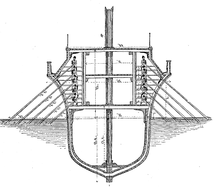 Until about a minute ago, I didn't know what a quinquereme was. Turns out it's a Roman galley with either five banks of oars to each side or five oarsmen to each bank. Which I guess makes sense, linguistically speaking. I only know the word from John Masefield's Cargoes, one of the few poems I can vaguely recall from my childhood. I'm sure at the time I must have gathered it was some kind of ship – the context makes it obvious – but somehow I'd remembered it as being one of the cargoes, rather than their transportation. A rare and exotic substance, akin to the ivory and sandalwood and cinnamon of the poem. Funny how memory works – or rather, how it fails to work, leaving all kinds of half-understood snippets and distorted facts lingering in the recesses of the brain. Cargoes is a beautiful example of how evocative language can be, particularly for a child. Not knowing what all the words meant didn't affect my enjoyment of it in the slightest; it was the sound and the rhythm of them that brought the scenes alive. In fact, if I'd known back then exactly where Nineveh and Palestine and the Isthmus were, I wouldn't have found it nearly as fascinating. Sometimes understanding something takes all the magic out of it. Of course, that's the beauty of language. It can mystify and enchant. It can make the familiar seem new and the outlandish seem mundane. Well-chosen words can make us laugh, make us cry, make us feel anger or pain or delirious happiness – even if they're only written on a page. Even if the story being told is pure fiction. Even if we've never experienced anything like what is being described. Language is the medium through which every one of us can travel to the furthest corners of the globe and beyond, without ever having to leave our own homes. In short, we each have our very own quinquereme. Isn't that amazing?
1 Comment
|
Archives
July 2016
Categories
All
|
 RSS Feed
RSS Feed
